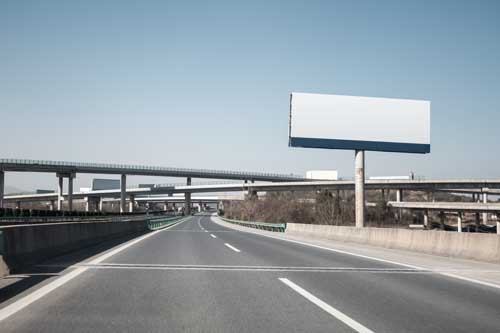|
Audio
|
However, getting penalized by Google for obvious mistakes and consequently dropping in search engine optimization (SEO) rankings could be detrimental to any given website. But in some cases, such problems occur as a result of ever changing or evolving Google algorithms. In this regard, you need to take drastic measures immediately you find out that your SEO rankings have taken a sudden tumble, or else your site will be at the risk of losing organic search obscurity. And this crucial step entails fixing the following listed six cardinal SEO mistakes:
1. Avoid Keyword Stuffing

SEO & Keyword Stuffing
Do you have the habit of using the same keywords over and over again? If so, it is time you changed your style to have your content make sense. But if you are looking to optimize your work by repeating keywords then you are in for a rude shock.
Besides discouraging visitors from reading and understanding your content, it also gives a signal to the search engine that you are trying to outsmart the algorithms. As such, Google does not really go down well with keyword stuffing.
To overcome such issues, just make good use of some online tools such as Live Keyword Analysis or rather, you can use Addme.com to establish the keyword density in your content. In this way, you can reduce the excess number of keywords to a density of about 1.5%. You can mention the keywords in the main title (if necessary), in the description, the opening paragraph and at least twice in the main body of your content. Also, ensure that the words used, sound more natural to make sense to the reader and Google in particular. This move aims at helping you in regaining the lost SEO rankings on Google.
2. Check the Speed of your Website

Website Speed Tips SEO Factors
According to the survey carried out by Gomez.com and Akamai, a good number of online users are always expecting the web page to load their work within the shortest time possible. But if it doesn’t go their way, they eventually abandon your site and move to the next. If this is one of the reasons that make your SEO ranking to go down, then it is prudent that you find the solution as soon as possible. Therefore, the only way out is to make sure that the loading time is a little bit faster through optimization of images, leveraging browser caching, activating resource compression and minifying codes.
You can, however, achieve your goal by using the free online tool such as PageSpeed Insights to determine the speed of your webpage. On the other hand, you can have a look at actionable recommendations as directed by the online tool to improve the load time speed of your website.
3. You should Never Buy Links

Website Links
It takes time for your site to achieve decent rankings in Google, Yahoo & Bing. Unfortunately, many people resort to shortcuts which lead them into problems. As a matter of fact, buying of links is one of the short-cuts that individuals turn to in a bid to make their websites successful. This is a bad idea especially if the links are coming from unreliable sources. When Google finds out, your ranking drops drastically thus taking you back to square one.
To avoid falling into such traps, never get lured into an SEO ad that is promising a lot of links with a first-page ranking at a lower price. Just ignore it to stay out of trouble. Most importantly, you need to know that links from spammy, untrustworthy websites and social media networking are likely to hurt your site as well. In fact, a number of such companies will always give you enticing stories that claim to give you protection through the creation of the link wheel or link pyramid pointing to the intermediary pages.
Even though these links might work for a while, Google evolves continuously and within no time, it might become stricter with any spam content. Likely it will lead to the closure of your webpage.
4. Become Mobile Friendly

Mobile Website
It is important to ensure that your website is mobile friendly due to Google’s idea of prioritizing mobile use. Apparently, 85% of web pages in the mobile search results follow the mobile-friendly approach. And that is why you need to join the trend in order to have a good flow of traffic.
At some point where your web pages are not responsive, most of those trying to view your content will experience difficulties. As a result, your rankings will equally be affected and the visitor inquiries and conversations will also be affected in the same way. Eventually, users will be compelled to look elsewhere once they realize your website is of no help to them when using handheld devices such as mobile phones or tablets.
5. Reduce the number of Ads on your Website

Avoid Website Ads
According to the recent changes to AdSense rules, more stringent measures are going to be in place to check on those sites which have more ads rather than the publisher provided content. So, if you feel this new rules will affect you, this is the right time to change your strategy or risk your SEO rankings to go down.
Ads seem to make a good number of users to leave your site and this causes the user experience metrics to drop. For Google, it means that your site no longer holds any value to the visitors and you are likely to get demoted. In addition to that, Ads are the main cause of ad blocking as indicated by the report published by PageFair and Adobe. Therefore, you need to minimize the number of ads on your webpage to avoid being penalized with no payoff.
6. Handle Technical Issues as soon as Possible

Website IT Issues
Problems such as poor hosting, network outages, server downtown, and slow connectivity can have a negative impact on your SEO rankings. It gets more severe if the problem is persistence whereby Google will be forced to abandon attempted crawls on the webpage within a stipulated time frame. In such a case, you need to identify the main problem and try to fix it. It may not be easy for you to establish the real cause of this issue but you need to find a way out if you want to stay in the competition. Otherwise, you can solve the problem using online tools such as Downforeveryoneorjustme or use any of the web hostings like the Liquidweb.

